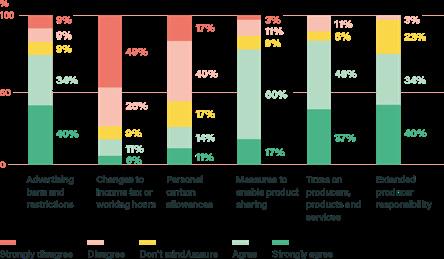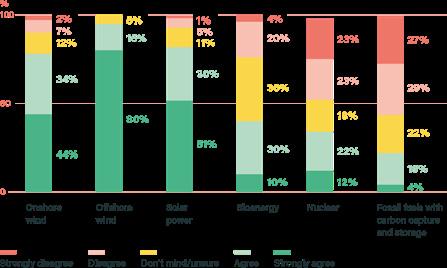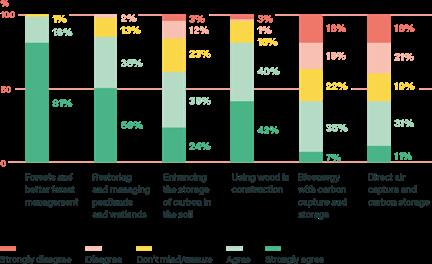
3 minute read
Citizens' Climate Assembly
prominence and delivered scathing speeches at UN meetings and at the World Economic Forums in Davos. Speaking at COP24 in Poland, she projected into the future:
The year 2078 I will celebrate my 75th birthday. If I have children, maybe they will spend that day with me. Maybe they will ask me about you. Maybe they will ask why you didn’t do anything while there still was time to act. You say you love your children above all else, and yet you are stealing their future in front of their very eyes.
Until you start focusing on what needs to be done rather than what is politically possible, there is no hope.88
Building on this momentum, the UK Student Climate Network (UKSCN) now co-ordinates the #FridaysforFuture school strikes and protests in Britain, with more than 350,000 students and adults taking part in September 2019. In terms of political action, UKSCN campaigns for the Green New Deal, Teach the Future, and electoral reform to lower the voting age to 16 and implement proportional representation.
Another form of democratic participation on climate issues is found in citizens’ assemblies. This model of engaging randomly selected people in a deliberative process of dialogue, on contentious political issues, gained prominence in Ireland over the past decade.89 The Irish government has used citizens’ assemblies twice, to bring ordinary people together to make policy recommendations that resulted in Constitutional reforms, on both gay marriage and abortion rights. In 2019, six Select Committees in the House of Commons commissioned Climate Assembly UK to bring together ordinary people to explore the question, ‘How should the UK meet its target of net-zero greenhouse gas emissions by 2050?’ 90 The 108 people who participated in Climate Assembly UK were a representative sample of the UK population, both demographically and in terms of their concern about climate
change. Guided by a number of experts, they met for six weekends in 2020. Half of these sessions were in-person and half were virtual, due to COVID-19 pandemic restrictions. They discussed a range of issues, including travel, home energy use and food. The Assembly agreed upon a number of principles and gave specific recommendations to guide the UK net-zero strategy, which were presented in a report called The Path to Net Zero. Some of the themes that were highlighted were: education and information, fairness, freedom and choice, co-benefits, and the restoration of nature.91
Youth Climate Summit
In November 2020, the charity Global Action Plan hosted a virtual Youth Climate Summit, involving thousands of students and teachers from around the UK. Youth Ambassadors synthesised the concerns of young people that were expressed at the summit into five main calls for action, which are quoted below: • Set up specialist protection areas for all carbon sinks such as peatlands, forests etc., with a fund that businesses impacting these areas pay into, • All new schools to be carbon zero, government and business to help all existing schools achieve carbon zero by 2030, • Stop subsidising farming that harms the planet and instead subsidise good farming practices such as regenerative farming and polycultures, • Business and government to accelerate the circular economy, • Government and business to make good on the green recovery they keep talking about - starting now, especially with green jobs.92
Figure 1: How much do you agree or disagree that each of the following policy options should be part of how the UK gets to net zero? (Climate Assembly UK,
2020):93
Figure 2: How much do you agree or disagree that each of the following technologies should be part of how the UK generates electricity? (Climate Assembly UK,
2020):94

Figure 3: How much do you agree or disagree that each of the following greenhouse gas removal methods should be part of how the UK gets to net zero? (Climate
Assembly UK, 2020):95

Participation in democracy can take many forms – voting, political lobbying, citizens’ assemblies, public protests and direct action. Many young people are not yet able to vote, but they have still found creative ways to get their voices heard by politicians – including going on strike from school. Traditionally, civil society representatives have played an important role at the UNFCCC COPs, both as formal observers inside the halls of power and as ‘rabble rousers’ in the streets outside. In Glasgow, a significant mobilisation by a cross-section of society might remind political and business leaders of the public appetite for ambitious climate action. However, ongoing concerns about COVID-19 may serve to limit public access and stifle the voices of those who would call for change.96
42



